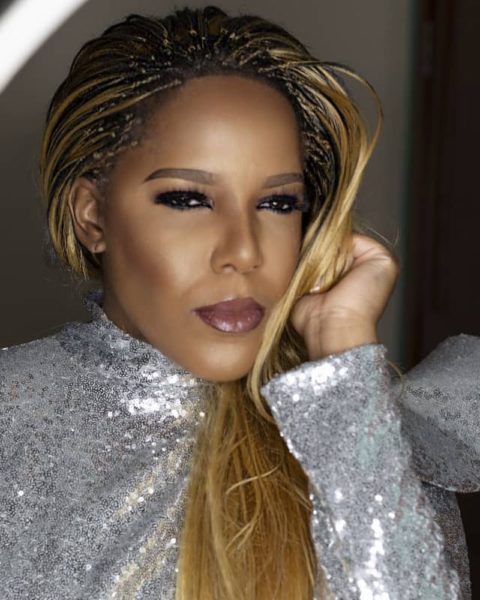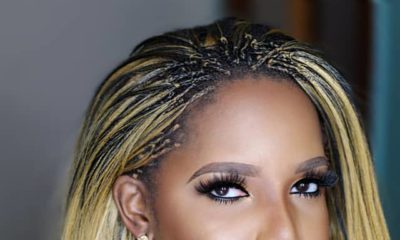Beauty
SuperModelMD: My Moustache is Getting in the Way of Potential Relationships
I insisted he tell me the reason he was pulling away from our passionate kiss. He reluctantly revealed that there was hair on my upper lip that kept scratching and irritating his skin while we kissed, and it really bothered him. He pretty much was saying that I had a mustache that was getting in the way of our being intimate.
I recently went out on a date with this hot guy from my uni that I’ve had my eyes on for some time now. The date was a lot of fun and our chemistry seemed great! Toward the end of the night, we started to have a really intense make out session. It was amazing. As in, I felt like I was in heaven.
After some time, he seemed to keep pulling away from me, and the kissing ended abruptly. I immediately asked him if my breath was offensive, since we literally had just finished eating a really spicy dinner. He stated that my breath wasn’t an issue. I then asked if he was just not attracted to me, because the entire night it seemed to me like we really connected. He replied that physical attraction wasn’t the problem either, and he felt we had great chemistry earlier. So, I insisted he tell me the reason he was pulling away from our passionate kiss. He reluctantly revealed that there was hair on my upper lip that kept scratching and irritating his skin while we kissed, and it really bothered him. He pretty much was saying that I had a mustache that was getting in the way of our being intimate.
I admit, yes, I’m a generally hairy woman. But I don’t think that I have excessive facial hair that qualifies as a full blown moustache. This has never been a problem or complaint that any man I dated in the past brought up.
Anyways, I don’t want my “moustache” to get in the way of a potential future relationship. SuperModelMD, I really need to know the best way to remove my facial hair!
-Whisker Woes
***
Dear Whisker Woes,
Many women actually have some degree of hair on their face and body, which can be totally normal. You stated that you are a generally hairy woman, well, it’s important to really get a better sense of the extent of your facial and body hair distribution pattern. This is key because some women may exhibit excess hair growth in regions more commonplace for men, such as the chest and face, and not even realise they have a condition known as hirsutism. Such patterns of excess hair growth may range from mild, moderate, to severe and the hair tends to be much darker and coarser.
Hirsutism may arise as a result of Polycystic Ovarian Syndrome (PCOS), adrenal tumors, menopause induced hormonal changes, and obesity. PCOS is one of the more common causes of hirsutism, and those with the condition often have accompanying symptoms of irregular menstrual cycles, ovarian cysts, and infertility. Sometimes the problem of hirsutism occurs for unknown reasons. Sometimes genetics and certain hormones may play a major role in the development of hirsutism. For example, when a woman has very high levels of circulating androgens in the body, then it can lead not only to hirsutism, but also eventually to a virilization whereby the woman’s voice becomes deep. Acne may form, and the clitoris may become extremely enlarged.
Nonetheless, if you do have excessive facial hair, in conjunction with other health symptoms, you should definitely be evaluated by a doctor. If diagnosed with hirsutism due to an underlying medical condition, treatment may potentially involve anti-androgen medications, oral contraceptive pills, special prescription facial creams, and adjunctive hair removal techniques. Weight loss would also be encouraged in those with hirsutism who are overweight, since shedding extra weight may also help reduce androgen levels.
If you don’t have hirsutism or an underlying medical condition, and you simply have facial hair that you want removed, there are both temporary and longer term options to eliminate the hair. Temporary options may require frequent ongoing maintenance, and include practices like tweezing, shaving, waxing, or threading; but for some women, they may experience skin irritation and even folliculitis after using these techniques. Other short term removal treatments include depilatory creams, which contain chemicals that can help dissolve and remove hair quickly. Again, the down side is that some women experience skin irritation when they use these creams.
Longer lasting treatments for hair removal include laser therapy or electrolysis. Laser therapy uses light beams to help eliminate hair, while electrolysis utilizes electric current to destroy hair follicles in areas of unwanted hair. Both treatment modalities are much more expensive than the hair removal options of waxing, tweezing, and shaving.
Here is the bottom line: When it comes to female facial hair, if there may be the slightest suspicion of an underlying medical problem at play, see your doctor for evaluation and treatment. If your facial hair really bothers you, remember there are plenty of available removal options to choose from, but always weigh the pros and cons of each.
Disclaimer: Information on this Q&A column is provided for informational purposes only, and is not intended as a substitute for the advice provided by your physician or other healthcare professional. You should not use the information to self diagnose or treat a health problem/disease, or prescribe any medication, or other treatment. If you suspect you have a medical problem, contact your healthcare provider immediately.




















